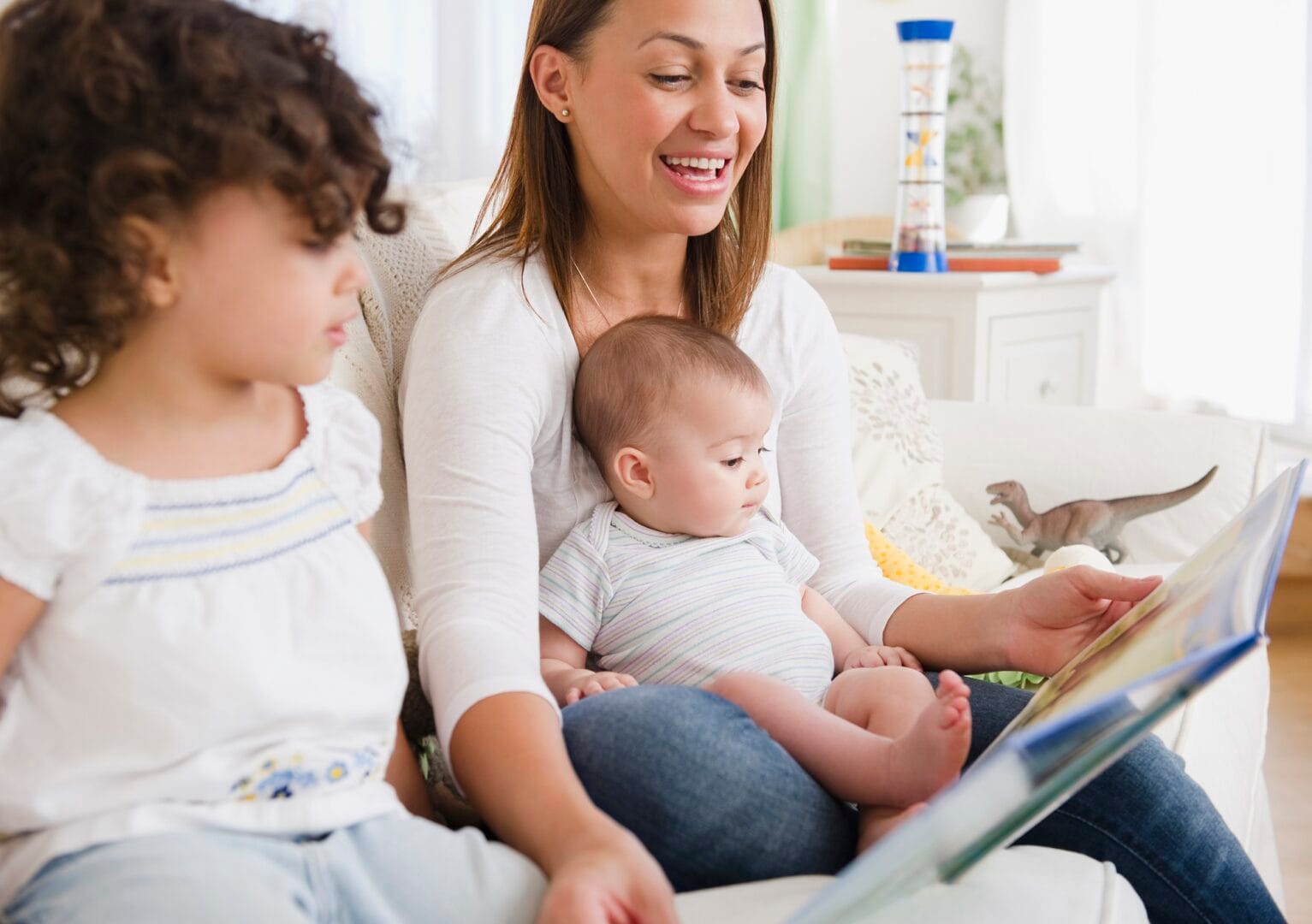Once you’ve found the perfect nanny for your family, you know it. It’s an exciting time, and sometimes important tasks can get lost in the mix. It’s easy enough to remember background checks and pay negotiations, but have you explained all the specific rules, like screen time guidelines, or showed them how everything works—like your complicated old dishwasher? You can’t be over-prepared when it comes to the care of your children.
Use this checklist to make sure you and your nanny are on the same page before they get started and over the first few days of work. They’ll thank you for all the specifics when something unexpected pops up. If it helps, print out this page and check items off as you complete them to ensure peace of mind and a successful start to this journey with your new nanny.
Contact and personal information
- Exchange contact information. This includes things like home address, phone numbers (work and mobile), and email for your nanny and for all members of your family. Determine the best way to reach each other during the day or in case of an emergency. For your paperwork, you may also need their licence number and National Insurance number.
- Make important numbers easy to access. Write down numbers for the paediatrician, school, and a close friend, family member, or neighbour, and keep them in an easy place to find in case they need them.
- Keep signed copies of your nanny contract on hand. You and your nanny should each have a copy of the signed work agreement or nanny contract. This should include the agreed-upon pay, days and hours for work, and any extra duties, such as agreed-upon housework, cooking, etc.
House rules
- Make sure the nanny has necessary access. Your nanny needs their own set of house keys, as well as entry cards or passes to the school, community centre, or indoor play space that your family uses, if you want them to take the kids there.
- Explain all household operations. Make sure the nanny knows how to operate the heat/air conditioning, TV, washing machine, dishwasher, and any other household appliances they may need to use. If you expect your nanny to be answering the phone a lot or taking messages, make sure they are aware. If your house is childproofed, demonstrate how the toddler safety gates operate.
- Lay out kitchen rules. Explain which dishes and kitchenware are OK to use if they are going to be doing any cooking.
- Notify your nanny of expected visitors. Be sure your nanny is aware of any visitors you’re expecting each day. That includes gardeners, pest control, cleaners, or any other maintenance workers who may be around the house.
- Detail all pet care. Does your nanny need to let any pets out to go to the bathroom, walk them, or feed them? Is there any weird behaviour to look out for, such as digging under or jumping fences, or excessive barking? This goes especially for naptime, when you don’t want the kids being woken up by loud animals.
Safety and health
- Discuss allergies and intolerances. Remind your nanny of any allergies or particular food issues your children may have and whether there are any items of food that are off limits, like super sugary items or your own stash of chocolate. For children with serious allergies, put food away that would be harmful to them.
- Be sure medicine is easily accessible. Show them where your emergency allergy or asthma medicine is located. Go over all dosage requirements. Outline this on a paper you can hang in a visible location.
- Go over bathing rituals for the kids. Explain things like which shampoo and soap to use, and remind them about safety concerns (i.e., experts advise that children 6 years or younger should not be unattended in a bathtub).
- Explain the nappy and potty situation. If the nanny is changing nappies, tell them how often they should do it and what ointments to use, if any. If you are potty training, explain the routine again.
- Set rules for playtime and naptime. Let the nanny know where it’s safe for the kids to play outside (if they can play unattended anywhere), and explain the rules for watching them on the swing set, trampoline, or on their bikes. If the kids have set quiet time or naptime, let the nanny know so they can keep them on schedule.
Transportation
- Explain all the specifics of your vehicle. If your nanny will be driving your kids, address specifics pertaining to your car. If it has a keyless ignition, computerised dashboard or GPS, make sure they are comfortable with it before you walk out the door. If you have moveable car seats, show the nanny how they operate. A nice thing to do is to program your GPS with the addresses of school, the doctor’s office, dance class, football practice, and the kids’ best friends’ homes. It may seem like a pain, but it’s easier than shouting directions over the phone while you’re at work.
- Decide how petrol will be paid for. If your nanny drives their own vehicle while on the job, you may want to include reimbursement in your nanny contract. If the nanny is driving your vehicle, make sure your petrol tank is filled or provide them with a per diem for expenses.
- Communicate any rules that pertain behind the wheel. For example, texting or talking on the phone while driving is unacceptable. It’s not only unsafe, it’s also illegal in the UK to use a handheld mobile phone while driving.
- Update your car insurance. Your car insurance plan should be updated to cover your nanny, if they’re going to be driving your car.
Daily routine
- Have a written protocol. For the first week, write down protocol until you get into a routine: school schedule, naps, classes and practice, extracurricular activities, meals, snacks, and homework. Bring your nanny up to speed with the timing of things, such as how long it may take on a busy morning to drive to school and how long it realistically takes your kid to get dressed and eat breakfast. As a general note, before you leave the house in the morning, you might want to give them a rundown of the day’s events, especially if there are changes to the routine.
- Explain screen time rules. Clearly state rules for phone, TV, and computer time in your house, or else your 7-year-old daughter may convince your nanny that she never leaves for school without a full viewing of her favourite TV show.
- Set social media guidelines. Discuss how you’d like your nanny to handle personal social media activity when they’re with your children. This includes whether or not you approve of them posting photos, videos, or updates about your children.
- Create a collaborative calendar. Consider making a shared calendar to refer to and encourage them to add to it as they get more comfortable. On the calendar, schedule regular check-ins with your nanny to go over any concerns that come up. A collaborative calendar app like TimeTree might be helpful.
Spread the word
- Let everyone know about your new nanny. Alert your child’s school, your neighbours, and your friends about your new nanny and give them your nanny’s name. Most schools will not release your child to someone who is not on an authorised list.

